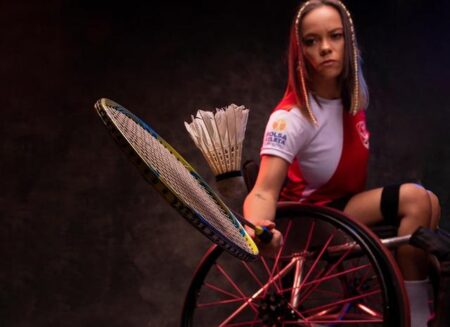In a recent development that has sparked renewed debate over transgender rights and youth sports, officials from the American Civil Liberties Union (ACLU) have questioned the rationale behind a reported executive order by former President Donald Trump targeting trans children’s participation in sports. The executive order, which critics argue could severely impact the rights of transgender youth nationwide, has drawn sharp criticism from advocacy groups who contend it undermines inclusivity and equal opportunity. This article explores the ACLU’s response and the broader implications of such a federal directive within the ongoing national conversation around gender identity and athletics.
ACLU Officials Challenge Trump Executive Order Targeting Transgender Youth in Sports
ACLU officials are condemning the executive order issued by former President Donald Trump that aims to restrict transgender youth from participating in sports consistent with their gender identity. According to the organization’s representatives, this action not only stigmatizes a vulnerable group but also distracts from more pressing issues in youth sports, such as equitable funding, access to facilities, and safeguarding athlete health. They argue that imposing federal limitations on transgender athletes is an unprecedented overreach that contradicts principles of inclusion and fairness.
Highlighting the potential consequences, the ACLU emphasizes several critical points:
- Legal challenges to the order are expected, as it infringes on civil rights protections under existing federal laws.
- There is no credible evidence supporting claims that transgender youth participation undermines competitive fairness.
- The psychological and social impact on transgender children facing exclusion can be severe, increasing risks of isolation and mental health struggles.
| Impact Area | Description |
|---|---|
| Legal Rights | Potential violations of Title IX and anti-discrimination laws |
| Youth Sports Inclusion | Undermines inclusive policies of numerous school districts |
| Mental Health | Elevates risks of depression and anxiety among transgender youth |
Legal and Social Implications of Excluding Trans Children from Athletic Participation
Excluding transgender children from athletic participation triggers a ripple effect beyond the playing field, posing significant legal challenges and deepening social divides. Legally, such exclusion often conflicts with anti-discrimination laws that protect individuals based on gender identity. The implementation of executive orders aimed at barring trans youth from sports raises urgent questions about constitutional rights, particularly concerning equal protection under the law. Civil rights organizations, including the ACLU, argue these policies risk fostering discrimination and eroding the legal precedents designed to ensure all students have equal access to extracurricular activities.
Socially, the exclusion acts as a catalyst for increased marginalization, affecting mental health and community acceptance for transgender youth. Research consistently links participation in sports with improved self-esteem and social integration, benefits that are denied when trans children are sidelined. The broader societal implications also include intensified public debates and polarization on issues of gender identity and youth rights. As the table below outlines, the consequences extend across multiple domains:
| Impact Area | Consequences of Exclusion |
|---|---|
| Legal | Risk of lawsuits citing discrimination and constitutional violations |
| Psychological | Increased anxiety, depression, and diminished sense of belonging |
| Social | Heightened stigma, exclusion from peer groups, and community division |
| Educational | Reduced participation in school activities and potential academic impact |
- Legal protections for transgender youth remain contested and inconsistently enforced.
- Inclusive policies promote mental well-being and positive social outcomes.
- Exclusionary measures risk undermining established civil rights frameworks.
Advocates Urge Policy Revisions to Protect the Rights of Transgender Students
Advocacy groups, including the American Civil Liberties Union (ACLU), strongly criticize recent executive actions targeting transgender youth in athletics, emphasizing that such policies undermine the rights and dignity of transgender students. They argue that these measures not only create an environment of exclusion and discrimination but also contradict established legal protections ensuring equal access to education and extracurricular activities. Experts stress the importance of inclusive policies that recognize gender identity, promote fairness, and safeguard mental health.
Experts and advocates have outlined key recommendations aimed at promoting equity without compromising competitive integrity, including:
- Implementing clear guidelines informed by medical and psychological research.
- Providing training to school officials and coaches to foster understanding and respect.
- Engaging transgender students in policy development, ensuring their experiences and needs are centered.
| Policy Element | Purpose | Impact |
|---|---|---|
| Inclusive Participation | Allow all youth to compete according to their gender identity | Increases student well-being and enrollment |
| Anti-Discrimination Training | Educate staff and athletes on transgender issues | Reduces harassment and promotes respect |
| Confidentiality Protections | Safeguard students’ personal gender information | Enhances privacy and safety |
Experts Recommend Inclusive Frameworks to Promote Fairness and Equality in School Sports
Leading voices in education and civil rights advocacy emphasize the necessity of creating inclusive policies that ensure all students can participate in sports without discrimination. These experts argue that fairness in school athletics is achievable not by exclusion, but through frameworks that recognize the diverse identities of young athletes. By prioritizing respect and equal access, schools can foster environments where competition promotes growth rather than division.
Experts have outlined key components that should guide the development of such frameworks, highlighting:
- Clear guidelines that protect transgender students’ rights while maintaining competitive balance.
- Training for coaches and staff on sensitivity and inclusion to create supportive team dynamics.
- Transparent review processes involving diverse stakeholders to handle eligibility issues fairly and consistently.
| Policy Element | Purpose | Impact |
|---|---|---|
| Inclusive Eligibility Criteria | Ensure fair participation | Reduces disputes, encourages teamwork |
| Educational Workshops | Promote understanding | Builds empathy, lowers stigma |
| Dispute Resolution Panels | Address conflicts transparently | Ensures accountability, fairness |
In Summary
As the debate over transgender athletes in youth sports continues to ignite controversy across the nation, the involvement of high-profile figures and organizations underscores the complexities at play. The ACLU officials’ questions about President Donald Trump’s executive order highlight ongoing tensions between federal authority and state-level policies aimed at protecting transgender children. As this issue remains deeply polarized, lawmakers, advocacy groups, and communities alike will be watching closely to see how legal, social, and political dynamics evolve in the months ahead.





